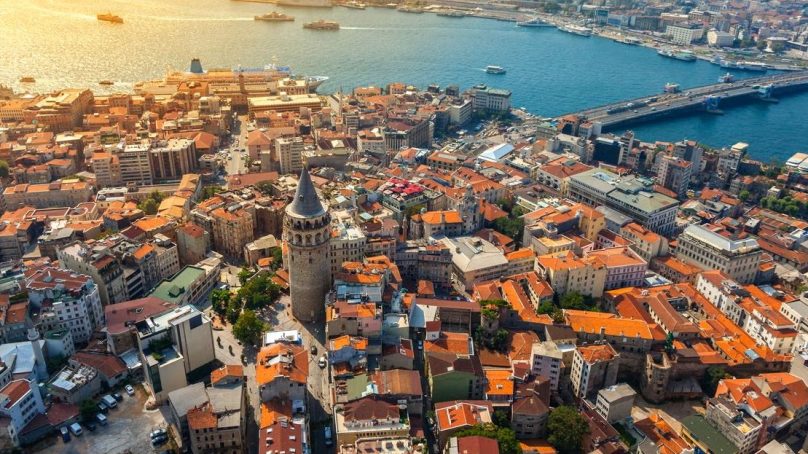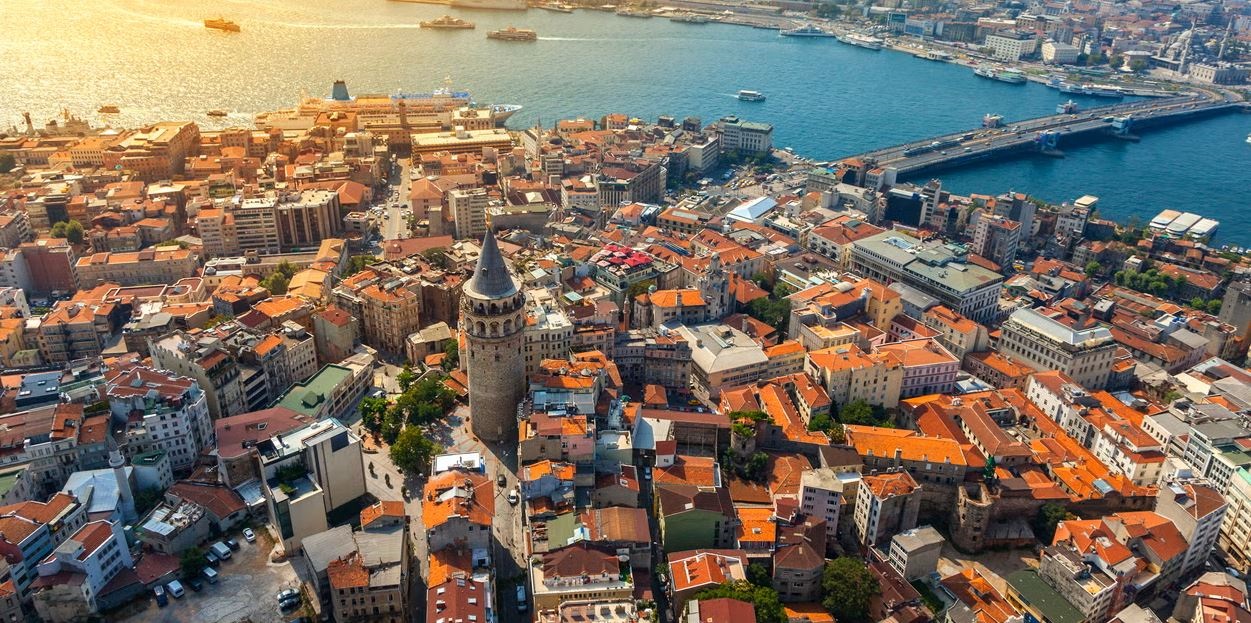

Landscape
Turkey has always attracted visitors with its deep-rooted history, culture and stunning scenery. Furthermore, its enhanced air connections and transportation networks have elevated its appeal for both leisure and business trips. Despite recent obstacles, like economic setbacks, inflation and currency devaluation, Turkey’s hospitality industry remains resilient.
Hotel performance indicators and projections
In 2023, Turkey saw a notable increase in tourism spending and arrivals, marking a growth of about 25-30 percent from 2022. Between 2022 and 2023, the hotel market witnessed robust growth in RevPAR, as indicated by data from STR Research. In 2023, Istanbul Hotels registered the highest occupancy at 65 percent. As for the Bodrum hotel market, it achieved the highest average rate at USD530. Despite lower occupancy due to seasonality, Bodrum achieved the highest RevPAR in 2023, followed by Istanbul, according to data.
Statista projects Turkey’s hospitality sector revenue to reach approximately USD 5.44 billion by 2024, indicating a promising outlook. Anticipated growth at 1.66 percent annually (CAGR 2024-2028) suggests Turkey’s hospitality market volume will reach USD 5.81 billion by 2028. This growth trajectory is underpinned by an average revenue per user (ARPU) forecasted to reach USD 309.70, signaling sustained momentum and increasing consumer spending in the sector.
Turkey’s hotels
As Turkey’s lodging scene evolves, boutique hotels have become symbols of personalized hospitality. Hotels offer guests unique experiences beyond standard accommodations. Meanwhile, Turkey’s landscape features numerous luxury hotels, especially in tourist hubs like Istanbul, Antalya, Bodrum and Izmir. These upscale properties, known for their lavish amenities and top-notch service, attract affluent travelers globally. Additionally, Turkey has seen significant growth in medical tourism. Consequently, it made Turkey a top choice for patients worldwide. Furthermore, it is expected to grow at a CAGR of 5.92 percent between 2024 and 2033. The Turkish Statistical Institute reported a 10 percent increase in health and medical tourism income from 2022 to 2023, totaling USD 2.3 billion. The Turkish government supports medical tourism, implementing policies to facilitate and promote the industry, fostering its growth.
Turkey’s branded residences
Driven by urbanization, changing demographics and demand for upscale living, Turkey’s branded residential market has undergone a transformative shift. Branded residences, associated with prestigious hospitality and luxury brands, now represent exclusivity, prestige and refined living. Cities such as Istanbul, Ankara, and Izmir have emerged as focal points for luxury residential developments. Furthermore, the market features names like Four Seasons, Ritz-Carlton and Mandarin Oriental, thus appealing to discerning customers seeking unparalleled lifestyle offerings. Branded residences offer more than luxury; they curate a lifestyle by globally recognized brands, fostering a sense of elite community. In high-end residential markets, luxury brands often command premiums of 25-35 percent, sometimes even higher, compared to non-branded properties.
Istanbul features branded projects with luxury names like Mandarin, Ritz-Carlton, Address, Four Seasons and Kempinski, while Bodrum offers Ritz Carlton, Mandarin Oriental and more.
Government initiatives and investment incentives
The efforts of the Turkish government to attract foreign investment have accelerated the rise of the branded residential market. The Citizenship by Investment scheme, granting Turkish citizenship to property investors, has spurred global investment in Turkey’s real estate sector. Continuous infrastructure development and urban renewal, combined with investment initiatives, create a favorable environment, fostering growth and innovation in hospitality.
Challenges and opportunities
Despite the promising growth of Turkey’s hospitality sector, there are ongoing challenges. Regulatory obstacles, economic fluctuations and geopolitical uncertainties still affect market dynamics and investor confidence. However, within these challenges lie opportunities for innovation and collaboration.
Turkey has a vibrant culture, well-established tourism infrastructure and diverse offerings. Consequently, it is positioned to strengthen and become more resilient. Furthermore, the outlook remains positive for the hotel and branded residential markets in Turkey.

Hala Matar Choufany
President
HVS Middle East, Africa and South Asia
hvs.com
@hvsmea
@halamatarchoufany













